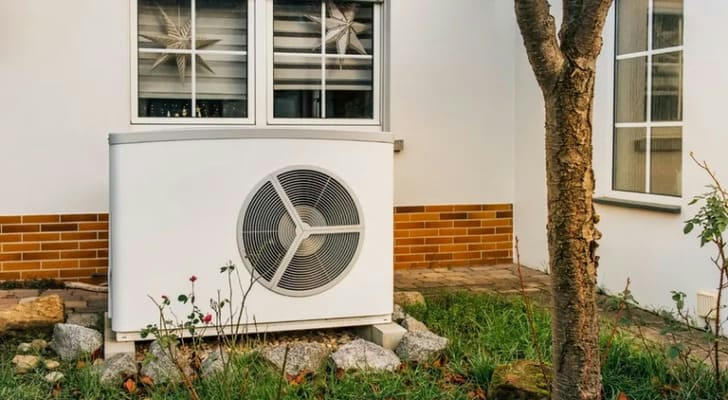Is a Heat Pump Right for Your Home? — UK Guide to the Boiler Upgrade Scheme and Choosing the Right System
A clear, practical guide to the Boiler Upgrade Scheme (BUS), who can apply, how to choose between a heat pump and a boiler, and what to check before booking an installer.
Quick overview
- The Boiler Upgrade Scheme (BUS) offers upfront grants to support replacing older fossil-fuel heating with low-carbon options such as air-source and ground-source heat pumps.
- Typical grant amounts:£7,500 for air- and ground-source heat pumps; £5,000 for biomass boilers.
- Applications are made by accredited installers; if approved the grant is deducted from the installer’s invoice.
Eligibility checks typically include owning the property, having an existing fossil-fuel or electric heating system, and having a valid EPC within the last ten years (installer will confirm).

Who can apply — clear eligibility checklist
Before requesting quotes, confirm these key points:
- Property ownership: The scheme is aimed at property owners (private homeowners, small business owners, some landlords).
- Existing heating system: The grant supports replacing fossil-fuel systems (gas, oil, LPG) or electric systems that do not already use a heat pump.
- EPC requirement: A valid Energy Performance Certificate (EPC) is normally required (EPCs are valid for 10 years).
- One grant per property:Only one BUS grant per property; the installer applies on the owner’s behalf.
If these checks look OK, arrange a site survey with an MCS-certified installer.
How the process normally works — step by step
- Pre-check suitability: Quick postcode or phone check to confirm rough suitability.
- On-site survey and heat-loss calculation: Installer assesses insulation, emitters (radiators/underfloor), outdoor space or ground-loop feasibility.
- Installer applies for BUS:Only MCS-certified installers submit BUS applications; if approved the grant is deducted from the invoice.
- Installation and commissioning: Proper commissioning and user briefing are essential for performance.
- Final paperwork: Installer submits required evidence; keep all quotes and certificates for records.
What the BUS pays for
- £7,500 towards an air-source or ground-source heat pump.
- £5,000 towards a biomass boiler (in limited circumstances).
- Note: Hybrid systems combining a fossil boiler and a heat pump are generally not eligible.
Heat pump vs boiler — practical benefits and limits
Benefits :
- Lower carbon footprint in most parts of the UK as the electricity grid decarbonises.
- Higher seasonal efficiency — modern heat pumps can deliver more heat per unit of energy when correctly sized.
- Cooling option: Many air-source heat pumps can provide summer cooling.
- Durability: Properly maintained heat pumps can offer long service life.
Limits and caveats:
- Higher upfront cost (even after the BUS grant, a heat-pump install often costs more than a like-for-like boiler swap).
- Property suitability matters:Well-insulated homes or homes with larger heat emitters perform best. Older, poorly insulated buildings may need fabric improvements.
- Design & commissioning: Incorrect sizing or poor commissioning reduces efficiency and comfort — insist on a written heat-loss calculation.

How to choose a system and an installer — pragmatic checklist
- MCS certification:Only accept quotes from MCS-certified installers if claiming BUS.
- Require a heat-loss calculation: A written heat-loss calculation (not a rule-of-thumb) is essential.
- Ask for a system schematic: The quotation should show outdoor unit(s), buffer tanks and control strategy.
- Transparent pricing: Quotes must itemise the BUS deduction and separate any recommended insulation or fabric works.
- Check references: Request local examples of similar property installations.
- Warranties & maintenance: Confirm equipment warranties and servicing requirements.
Common questions
Is BUS available across the whole UK?
- BUS applies to England and Wales. Scotland and Northern Ireland may have different or additional schemes — check devolved-government guidance.
Who applies to BUS?
- The MCS-certified installer applies on behalf of the property owner; the grant is deducted from the invoice if approved.
Will a heat pump keep a UK home warm in winter?
- Modern heat pumps are designed for UK conditions, but comfort depends on system sizing, emitter temperatures and insulation.
Final notes and next steps
- Start with a valid EPC and a shortlist of MCS-certified installers.
- Get 2–3 detailed quotes that include a heat-loss calculation and a clear BUS deduction line.
- Request commissioning records and user guidance at handover.
- Treat the BUS grant as a significant upfront contribution, not a guaranteed payback; long-term savings depend on property-specific factors (insulation, usage and electricity prices).
The BUS reduces upfront cost but does not guarantee a fixed payback period; long-term savings depend on household heat demand, electricity prices, insulation and user behaviour. For many homes, heat-pump running costs can be lower than gas when the system is well-sized and the property insulated — but this is case-by-case.
